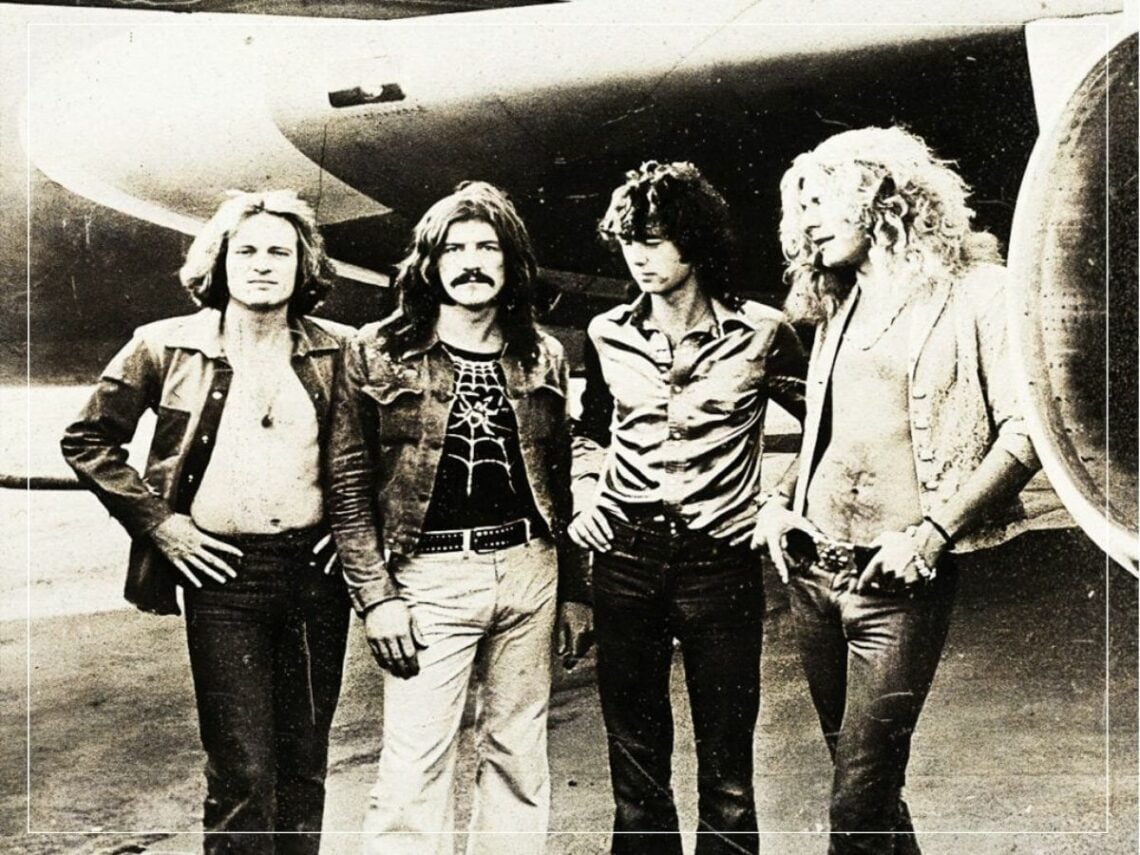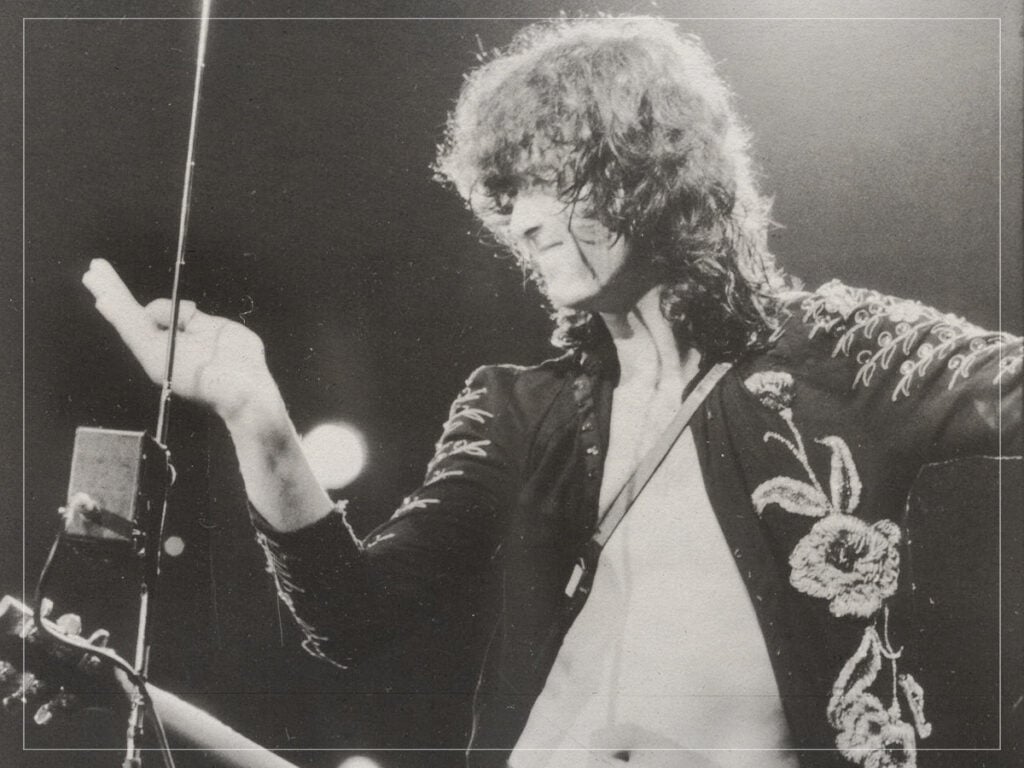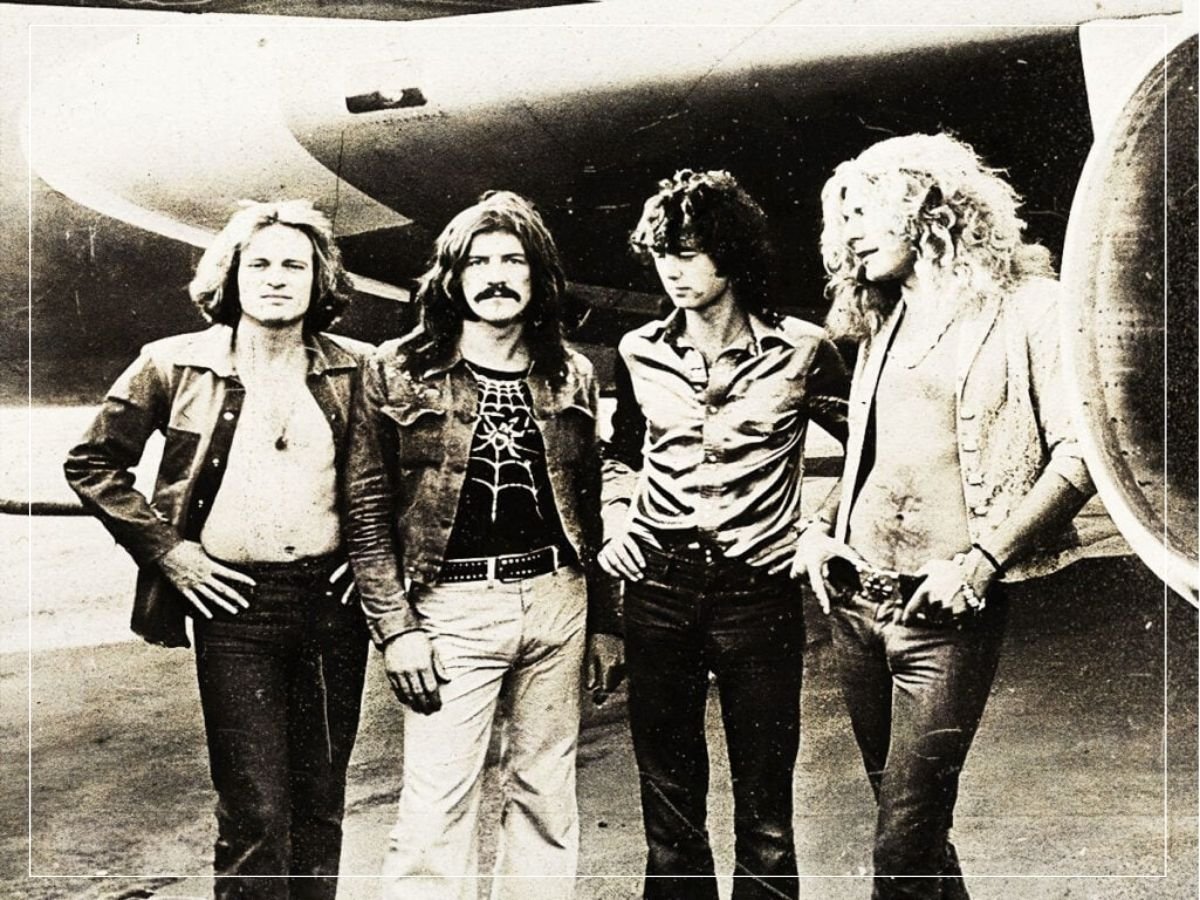
(Credits: Far Out / julio zeppelin)
Fri 22 August 2025 17:30, UK
You’ve got The Beatles way out in front with around 600million record sales, and then you’ve got Led Zeppelin vying with Queen for the second place spot, both lingering around the 300million sales mark. Needless to say, that’s a lot. Hell, Jimmy Page has even owned multiple castles.
But it’s not just the monetary rewards of being in Led Zeppelin that boggle the mind, the group also completely changed the face of modern music, taking up the Fab Four’s mantle in continuing the counterculture surge into the 1970s. Much like The Beatles, you can’t really imagine them as being any different from the band that we know and love, either.
Such was their simultaneous sense of superstardom and seamless chemistry, their jams together are a picture of rock ‘n’ cohesion to an alchemical degree, but also, when a poll of thousands of music fans asked people to pick the greatest frontman, guitarist, bassist and drummer of all time, each member of Led Zep comically came out on top.
They were, in essence, a supergroup, but they fit together in such a hand in glove manner that there were never any of the usual gripes of the sum being less than the parts. So, you might think that they were carefully honed from the get-go, but that wasn’t the case.
Jimmy Pagw was stuck between two poles in the 1960s. He had already established himself as a leading session guitarist and producer in the early part of the decade, esteemed among his peers, so when the Yardbirds needed a new guitarist, the group tried to prise him out of the studio. They were successful, but the issue was that they were not necessarily a group in the traditional ‘band of brothers’ manner, they were more so an ensemble of individualists.
 (Credits: Far Out / Open Culture)
(Credits: Far Out / Open Culture)
In fact, Page’s arrival inadvertently furthered this with the likes of Jeff Beck so impressed that he knew he had to depart and abide by his wont for personal experimentation. Thus, by mid-1968, Page was somehow the only member of the Yardbirds left. At that point, he may well have called it a day and returned to the studio forevermore, but the band still had some US dates on the horizon, and ever a man of his word, Page was determined to fulfil them.
This honorary nature also arrived with the realisation that he really did have a desire to go on as a member of a band rather than supporting party, so he decided to assemble a new one.
He might have been a maestro guitarist and creditable songwriter at this stage, but he knew the one thing he wasn’t was a frontman. He knew a good one, however, called Terry Reid, but Reid was in the habit of rejecting bands, favouring his own muse, so much so that he not only turned down the chance to be Led Zeppelin but also Deep Purple after being buoyed by a solo tour with The Rolling Stones.
Therein lay Page’s issue. He wasn’t pitching Led Zeppelin as we know them today, the icons of rock who own castles and candy stores, he was pitching, well, himself, who at that time was the sole remaining member of a creatively and commercially failing Yardbirds.
So, he had to be an early adopter of ‘shop local, think global’, and back in his hometown, Robert Plant was renowned as a premiere vocalist. He had also clearly displayed his own knack for artistry too by creating a proto-viral stunt, engineering his own non-existent arrest, and ‘Free Robert Plant’ campaign.
Page was suitably impressed by the Band of Joy singer. So, he not only hired him, but asked him if he knew any good drummers while he was at it. Thus, we arrive at the sorry tale of Mac Poole, a man who lived his life under the shadow of an enormous what-could-have-been, a monumental castle-owning, 300million record selling, culture evolving, private jet with a lounge in it what-could-have-been.
By all accounts, Poole was a contented and lovely man, but there is no doubt that the odd moment stood by the kettle on an idle Tuesday must’ve plagued him. However, in those moments, a semblance of comfort could surely be extracted from the fact that it was equally an idle Tuesday when the proposition was presented to him, and he had no way of knowing that his pals’ presentiment was actually millions of pounds and a profound impact on the world.
As Poole recalled in When Giants Walked the Earth, “Robert put it to me in a very kind of simplistic way. He just said, ‘I’m doing these sessions with a guy called Jimmy Page, and we’re gonna get a band together and we’re gonna call it the New Yardbirds – and we need a drummer.’”
Poole added, “That was like asking me if I was free. That’s how we did it in Birmingham, you sounded people out first, you didn’t just say, ‘Do you want the job in the band?’ But I just said, ‘Well, I’ve got my own band, Rob, we’ve got our own deal.’”
In fairness, Plant did say, “and we need a drummer” which, to me, implies more than a mere ‘are you free for a kickabout?’ Alas, poor old Poole might’ve had to bend the truth to himself a few times to keep up his chipper disposition.
Related Topics
The Far Out Led Zeppelin Newsletter
All the latest stories about Led Zeppelin from the independent voice of culture.
Straight to your inbox.
